Search Results
Showing results 1121 to 1140 of 1908

Fun with Flatware: Little Experiments to Try at the Dinner Table
Source Institutions
This is a series of three quick science activities to do with a spoon, knife, and fork. In the first two activities, learners use the flatware to explore optics, mirrors, reflection, and distortion.
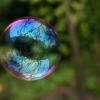
Capturing Carbon Dioxide
Source Institutions
In this activity, learners investigate carbon sequestration by creating a carbonated beverage out of apple juice and dry ice.
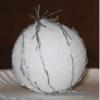
Neato-Magneto Planets
Source Institutions
In this activity, teams of learners study magnetic fields at four separate stations: examining magnetic fields generated by everyday items, mapping out a magnetic field using a compass, creating model
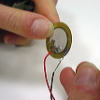
Electric Cup Guitar
Source Institutions
Make a one-string "guitar" by stringing a cup with some fishing line. You amplify the plucking of the string by placing a piezo contact microphone and mini battery powered amplifier inside the cup.

Bridge Building
Source Institutions
This is a quick activity (on page 2 of the PDF under Hockey Sticks Activity) about how the arrangement of carbon atoms determines carbon's different properties.

2-Liter Landfill
Source Institutions
In this activity, learners gain a better understanding of how household/school waste breaks down in a landfill. Learners collect trash and then create miniature landfills in 2-liter bottles.
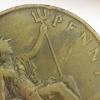
Iron in the Environment
Source Institutions
In this chemistry activity (on page 2 of the PDF), learners corrode a penny in a cup with vinegar, salt water, and a source of iron (nails, paper clips, or twist ties).
Dollar Bill Grab
Source Institutions
In this demonstration, learners observe as two cola bottles and a dollar bill are arranged in a specific order: one bottle, upside down and filled with water, is placed on top of another bottle, with
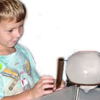
Musical Ice: How to Make an Ice Theremin
Source Institutions
Build a musical ice theremin by programming a micro controller, like a Pico Cricket to respond to resistance generated by the ice melting, or the ice being touched.
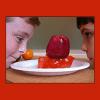
Space Jell-O
Source Institutions
Albert Einstein proved that space bends around anything that has mass. This activity uses Jell-O's ability to bend around objects as a model for space bending around planets and stars.
Musical Coathanger
Source Institutions
In this activity, learners turn an ordinary metal coat-hanger into a (very quiet) musical instrument.

A Closer Look at Crystals
Source Institutions
In this activity, learners compare different types of salt crystals under a magnifying glass.
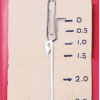
Rubber Band newton Scale
Source Institutions
In this activity, learners make a simple spring-like scale using a rubber band instead of a spring, and calibrate the scale in newtons (N).
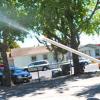
PVC Water Squirter
Source Institutions
In this activity, learners build a water squirter using a PVC pipe, dowel, and foam. This activity is great for the summer time and introduces learners to forces and water pressure.

Water, Water Everywhere
Source Institutions
In this activity, learners estimate how much water they think can be found in various locations on the Earth in all its states (solid, liquid, and gas) to discover the different water ratios in the Ea
Build A Hydrometer
Source Institutions
In this activity, learners will explore how a hydrometer works by building a working model and conducting experiments.

Thar She Glows!
Source Institutions
Learners observe glow-in-the-dark objects in a homemade light-proof box. Objects can include glow sticks, glow-in-the-dark toys, and toys with fluorescent paint.

Swirling Milk
Source Institutions
In this chemistry activity, learners prepare two petri dishes, one filled with water and one filled with milk.

Oil Spill Solutions
Source Institutions
In this activity, learners explore how environmental engineers might approach solving the problem of an oil spill.
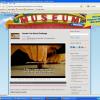
Inertia Coin Stack Challenge
Source Institutions
In this activity, learners experiment with inertia by performing an easy and hands-on investigation with a playing card and a stack of coins. The activity includes an accompanying Mr.
